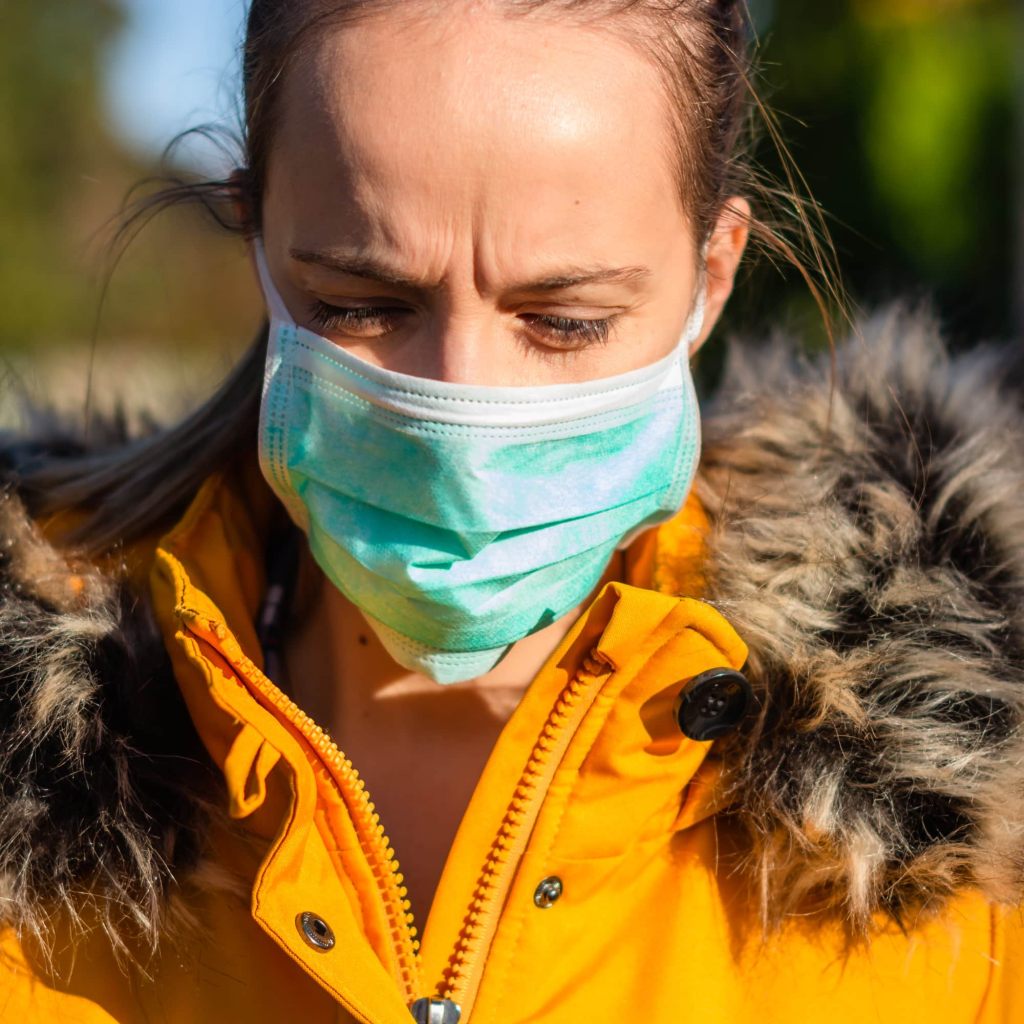We’ve been hearing a lot of the same advice about the coronavirus pandemic:
- Follow social distancing and stay-at-home orders. The CDC recommends working from home if possible, and only going out for essential reasons (like groceries or doctor’s appointments).
- Wearing a cloth face mask in public places.
- Stay at least six feet away from others at all times.
- Wash your hands with soap and water for 20 seconds. (This is the right way to do it.)
- Disinfect frequently touched surfaces using wipes or sprays containing 60 percent alcohol (ethanol or isopropanol). Here are the recommended cleaning supplies to fight coronavirus.
- Avoid touching your nose, mouth, and eyes.
- Stay home if you feel sick. Here’s more about the symptoms of coronavirus and how to distinguish it from a cold and the flu.
It’s essential to prioritize these strategies to slow the spread of the coronavirus. But if you’ve been wondering about the opposite end of the spectrum – what’s the worst thing you can do to put yourself and others at risk? – Aruna Subramanian, MD, an infectious disease doctor and clinical medical professor at Stanford, offers this answer: “Using up healthcare resources,” she said, is the worst thing that most of us can do at this point. Avoid hoarding surgical face masks, N95 respirators, and essential supplies like household cleaners, medicine, and food. (Medical-grade face masks are only recommended for healthcare professionals; the general public are encouraged to use cloth face masks.) “It’s good to be prepared,” Dr. Subramanian said. “But to not have enough supplies on the shelves for everyone else is not the right thing.”
Related: If Your Gym Is Reopening, Is It Safe to Go? Here’s What Doctors Say
She encouraged looking at the bigger picture because helping to protect those around you, as much as is feasible, will help fight the outbreak in the long run. “If the people around you don’t have their supplies and they’re getting sick,” Dr. Subramanian explained, it will only prolong and increase the crisis. It still makes sense to stock up on home supplies in case of quarantine, but make sure to check your proportions, and buy only what you and your family need.
In addition, Dr. Subramanian encouraged checking in on and taking care of higher-risk people, such as those with preexisting conditions like heart disease, lung disease, or diabetes, and people over the age of 60. Communicate with them as safely as possible by calling, texting, FaceTiming, or talking from a safe distance.
“We have to go out of our way to protect those who need it,” Dr. Subramanian said, including not just higher-risk individuals but also people who are unable to work from home or take time off in case of a medical emergency. “We’re going to have to step up as a society to help the vulnerable and the higher risk.”
Many of us are isolating ourselves to fight the coronavirus pandemic. But as Dr. Subramanian pointed out, this global crisis also requires coming together to protect the most vulnerable, whether that’s by actively checking in on older neighbors or family members, practicing social distancing, or wearing a face mask even when you don’t feel sick.
You should continue your best prevention practices at an individual level: staying home, washing your hands, everything we’ve talked about and that you’ve been hearing. At the same time, to fight the outbreak on a larger level, “We have to stop thinking about each person as an individual,” Dr. Subramanian said. “We have to think bigger.”
POPSUGAR aims to give you the most accurate and up-to-date information about the coronavirus, but details and recommendations about this pandemic may have changed since publication. For the latest information on COVID-19, please check out resources from the WHO, CDC, and local public health departments.
Related: Very Few Babies and Kids Are Getting Sick From the Coronavirus, but Why?

